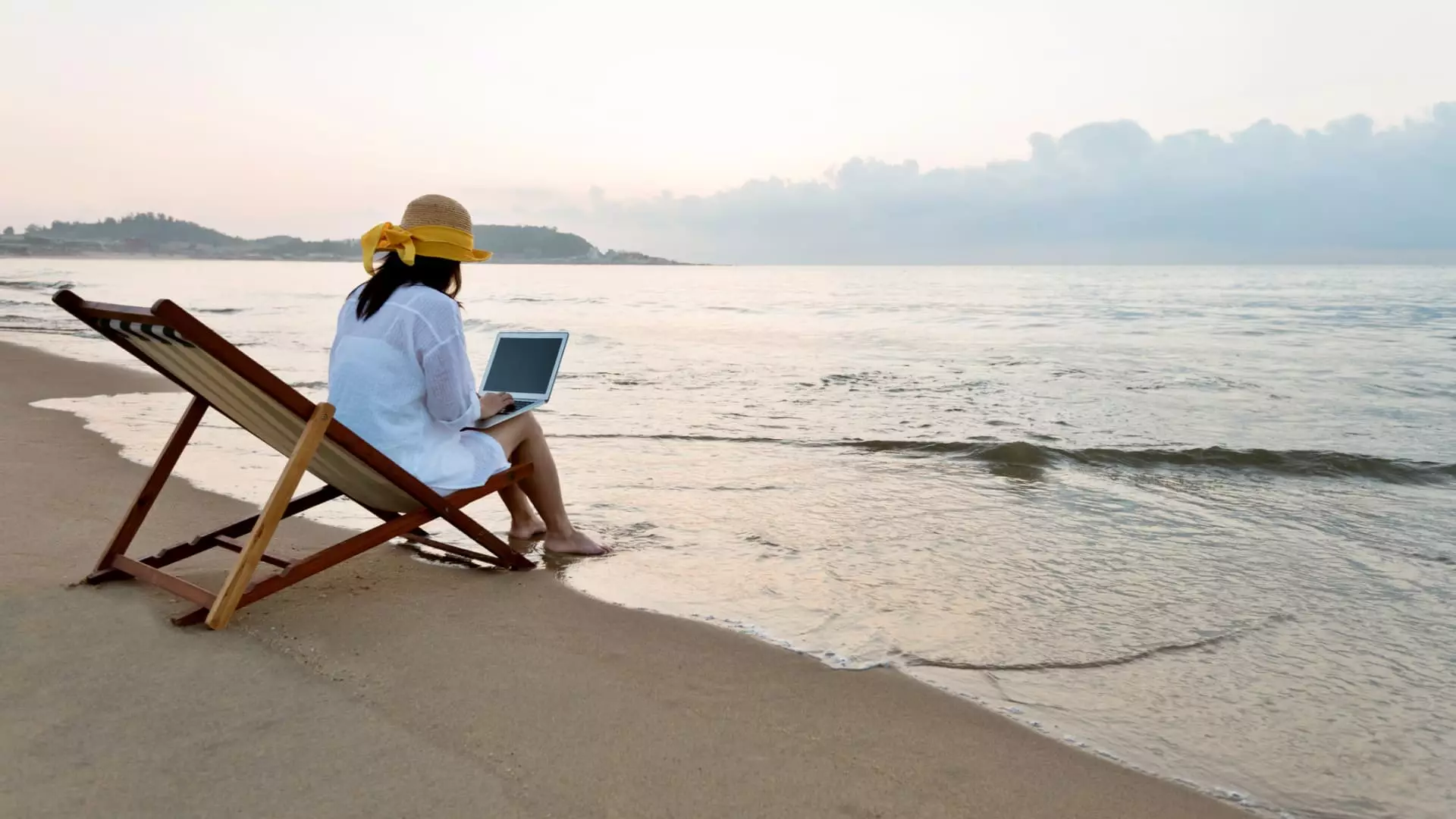The holiday season, traditionally marked by gatherings and celebrations, is witnessing a transformative shift in how Americans approach their travel plans. With remote work becoming increasingly normalized, a substantial number of employees are finding innovative ways to blend work and leisure. Many are now able to extend their holiday getaways, seamlessly navigating their professional responsibilities alongside their personal escapades. This article explores the implications of this evolving travel landscape, the financial strategies employed, and the demographic trends that shape travelers’ choices.
Recent surveys reveal a noteworthy increase in the number of employed travelers who identify as “laptop luggers,” individuals who intend to engage in work while on vacation. The initiative reported by Deloitte indicated that nearly half of those surveyed, specifically 49%, plan to bring their work on vacation—a significant rise from 34% the previous year. This trend is particularly pronounced among younger generations and high-income earners, with 58% of Gen Z respondents (ages 11 to 26) and 52% of individuals earning over $100,000 acknowledging their intent to work while traveling. As the flexibility of remote work becomes embedded in workplace culture, it liberates many from the constraints of traditional office settings.
Eileen Crowley, a vice chair at Deloitte, pointed out that this increase spans across various demographics, confirming the shifting attitudes towards work and leisure. The COVID-19 pandemic effectively catalyzed a new way of thinking about work-life balance. The traditional barriers that once kept employees tethered to their desks are now dissolving, offering a more adaptable lifestyle that embraces both personal enjoyment and professional obligations.
While many travelers continue to prioritize their holiday adventures, financial prudence remains a critical factor in their planning. Despite rising costs associated with holidays, many Americans remain committed to their travel plans, albeit with a few adjustments. According to data from a recent Bankrate analysis, around 83% of travelers are actively seeking ways to economize. Popular strategies include choosing driving over flying, prioritizing off-peak travel days, and utilizing reward points or discounts to mitigate expenses.
High-income earners distinctly influence the holiday travel landscape this year, with 52% asserting that holiday spending is easily manageable. This demographic demonstrates a less pronounced sensitivity to price fluctuations compared to their lower-income counterparts, with financial experts highlighting that individuals earning above six figures often approach spending with greater confidence. In contrast, those with lower disposable incomes are likely to exhibit more budgetary constraints, underlining the socio-economic divisions in spending behavior.
Millennials, the demographic segment born between 1980 and 1996, are leading the charge in terms of both travel frequency and expenditure. According to the Deloitte survey, millennials are expected to take approximately 2.6 trips during the holiday season, anticipating an average expenditure of around $3,927. This segment’s penchant for travel has significantly contributed to the industry’s recovery post-pandemic, as they seek out experiences that create lasting memories.
For those contemplating remote work during their holiday travels, it is vital to navigate their company’s policies concerning remote work wisely. Compliance with workplace regulations is paramount, as certain organizations may impose geographical restrictions on employees’ work locations. Julia Pollak, chief economist at ZipRecruiter, stresses the importance of understanding these parameters to avoid potential repercussions such as job termination or inaccessibility to work resources.
Travelers should also take the time to ensure that their intended work environment offers the necessary technological support, such as reliable Wi-Fi and adequate electrical provisions. This is particularly relevant for the increasing number of professionals who find themselves working in varied settings, from the comfort of a holiday rental to a cozy café. Connecting with management about work arrangements will provide clarity on expectations and will help maintain transparency within teams.
The renewed interest in travel and experiences can largely be attributed to pent-up demand following extensive pandemic-related restrictions. Many individuals are eager to make the most of their newfound freedom, prioritizing travel that enhances their personal and social lives. Over time, spending on experiences—whether travel or other leisure activities—has seen a consistent upward trajectory, demonstrating that Americans are immensely value-driven when it comes to crafting meaningful experiences with friends and family.
As remote work becomes an integral part of American life, the way people approach holiday travel is evolving dramatically. A blend of work and play is enabling many to travel with greater frequency and flexibility while being mindful of their budgets. As we move forward, this trend shows no signs of abating, promising exciting possibilities for holiday travelers and the travel industry alike.

